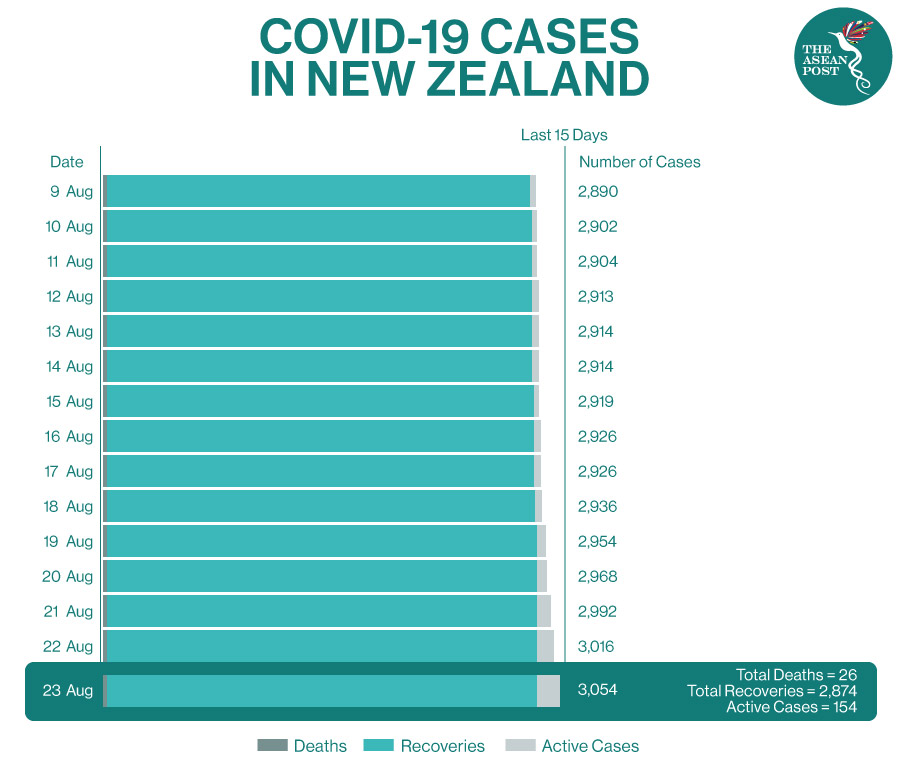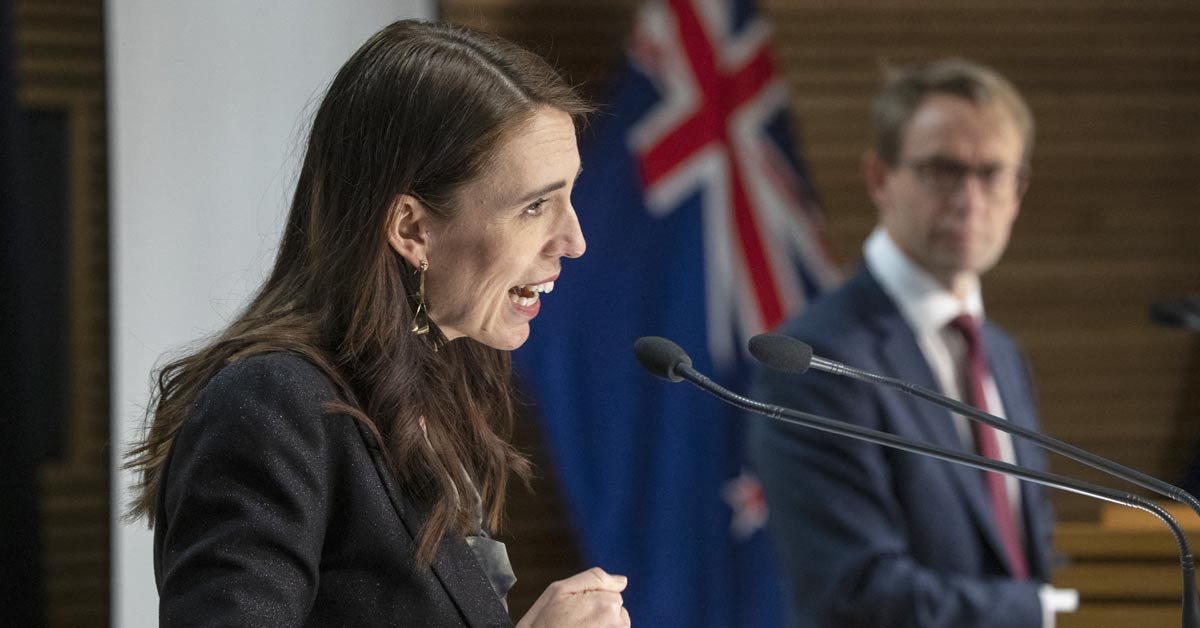The arrival of the Delta strain in New Zealand has prompted the country’s COVID-19 response minister to question the efficacy of its ambitious elimination strategy - an approach that has been the backbone of the country’s pandemic response.
Chris Hipkins told current affairs programme Q+A on Sunday that Delta raised “big questions about the long-term future of our plans”.
“Delta does raise some big questions that we’re going to have to grapple with, you know less than a 24-hour period for someone getting it and passing it on to others… that’s like nothing we’ve dealt with in this pandemic so far, and it does change everything,” he said.
“It does mean that all of our existing protections… start to look less adequate and less robust, as a result of that we are looking very closely at what more we can do there.
At some point, we will have to start to be more open in the future.”
The comments come as the country, currently in a nationwide lockdown, grapples with a growing outbreak that has spread from Auckland to Wellington. So far 72 community cases have been reported and more than 300 locations of potential exposure, including schools, universities, hospitals, churches, bars, restaurants, airports and a casino. Nearly 10,000 close contacts across the country are being tested.

Genome sequencing has linked the cluster to a returnee from Australia. It is not yet known how the virus was transmitted from the traveller, who was in quarantine, to the community. Health officials are now investigating a walkway near the quarantine facility’s exercise area, which is sectioned off from the public with road cones and a fence.
Hipkins’ comments were a departure from the government’s usual messaging over its elimination strategy.
Earlier in the month, at the announcement for New Zealand’s border reopening plans, the prime minister, Jacinda Ardern, said the country would continue to pursue its elimination response, adding that it would be “a careful approach that says, there won’t be zero cases, but when there is one in the community, we crush it”.
Over the past two months, New Zealand has looked on as elimination success-stories across the Asia-Pacific region battle the Delta variant. Hong Kong, Australia, China, Taiwan and Singapore - all had achieved elimination or close to it. Delta arrived to them all, and many struggled to contain it.
Epidemiologist Michael Baker told RNZ that an elimination strategy is essential in the medium term until more of the population is vaccinated.
“In many ways, we are buying time to learn more about how to manage this virus longer term.”
That could move to a suppression strategy, which aims to keep the number of cases very low, later in the year or early next year, Baker said.
The vaccine rollout has ramped up since the outbreak. On Saturday, more than 52,000 doses were administered - bringing the total number of doses to 2.75 million. Just under one million people are now fully vaccinated - a fifth of the population.
The government has also upped its protection requirements, including making check-in mandatory at all front-facing “high-risk” businesses such as bars and restaurants, at all alert levels. The new rules will kick in a week after the lockdown alert level downgrades from its current setting, level 4. Businesses could face fines if they do not enforce the new rules. Mask wearing has also become mandatory for people visiting essential services such as supermarkets and pharmacies.
Digital contact tracing has been low in New Zealand, perhaps driven by a sense of complacency, with the country having been largely protected from coronavirus.
Dr Andrew Chen, from the think tank Koi Tū: Centre for Informed Futures at the University of Auckland, said modelling from the research institute Te Punaha Matatini showed that there needs to be at least 60 percent, and preferably 80 percent, of adults participating in digital contact tracing to have a meaningful impact on the reproducibility rate of COVID-19. Before the current outbreak, just 10 percent of New Zealanders were scanning in using QR codes, and between 35 percent and 40 percent were using Bluetooth tracing.
“With the Delta variant, we need that participation rate to be higher than ever,” he said.
He said the government still had some work to do to ensure the new rules do not raise ethical problems around allowing people access to services, if they refuse, or cannot participate in record-keeping. Minimising digital exclusion – 20 percent of adult New Zealanders do not have access to a smartphone - should also be included in the government’s strategy, Chen said. – The Guardian
